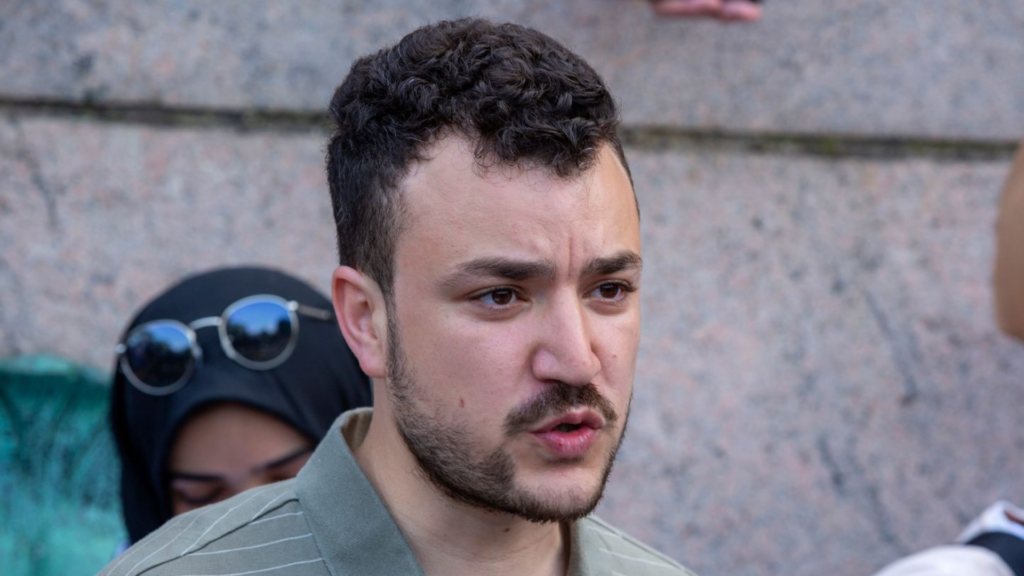
A federal immigration judge has ruled that Mahmoud Khalil, a Syrian national and Columbia University graduate, can be deported from the United States following his involvement in leading anti-Israel protests at Columbia last year.
The decision marks a major step in the Trump administration’s broader push to crack down on foreign nationals participating in what it calls “extremist political activism” on U.S. soil.
Judge Jamee Comans issued the ruling from Louisiana on Friday, concluding that the federal government had met its legal threshold for removal.
Khalil, 30, was detained by ICE in early March and is accused of leading demonstrations that allegedly promoted antisemitism and disrupted the educational environment for Jewish students.
Khalil, who has maintained his innocence, sharply criticized the ruling, stating in court: “What we witnessed today lacked due process and fundamental fairness… This is exactly why the Trump administration sent me to this court, 1,000 miles away from my family.”
His legal team has until April 23 to file for relief to halt the deportation. But the court’s decision follows a letter from Secretary of State Marco Rubio—acting under the Immigration and Nationality Act of 1952—stating that Khalil’s continued presence in the U.S. “would have serious adverse foreign policy consequences.”
Rubio cited Khalil’s participation in anti-Israel protests as justification for the removal, stating the demonstrations fostered a hostile climate for Jewish students and undermined U.S. foreign policy.
He pointed to provisions in the 1952 law that allow for deportation if the Secretary of State determines a noncitizen’s presence could harm U.S. interests.
The Department of Homeland Security has further accused Khalil of leading protests “aligned with Hamas,” which is designated by the U.S. as a terrorist organization.
While Khalil denies any such connections, DHS cited his role in organizing campus disruptions following the Oct. 7, 2023, Hamas attacks on Israel as justification for enforcement.
Khalil’s attorneys slammed the decision as unprecedented, warning that the administration’s use of this authority poses a threat to free speech. They argue the statute is vague and could be weaponized against any noncitizen expressing pro-Palestinian views.
“This creates a chilling effect,” they said. “Noncitizens—including legal residents—now fear they could be next simply for expressing their political beliefs.”
The deportation case is being closely watched, as Khalil is the first student targeted under Trump’s revived policy to revoke visas of foreigners involved in anti-Israel activism.
The case reflects a broader shift under the Trump administration toward tightening immigration laws and curbing foreign influence in domestic political protests.

